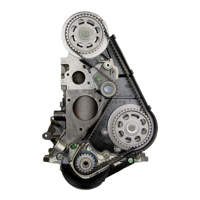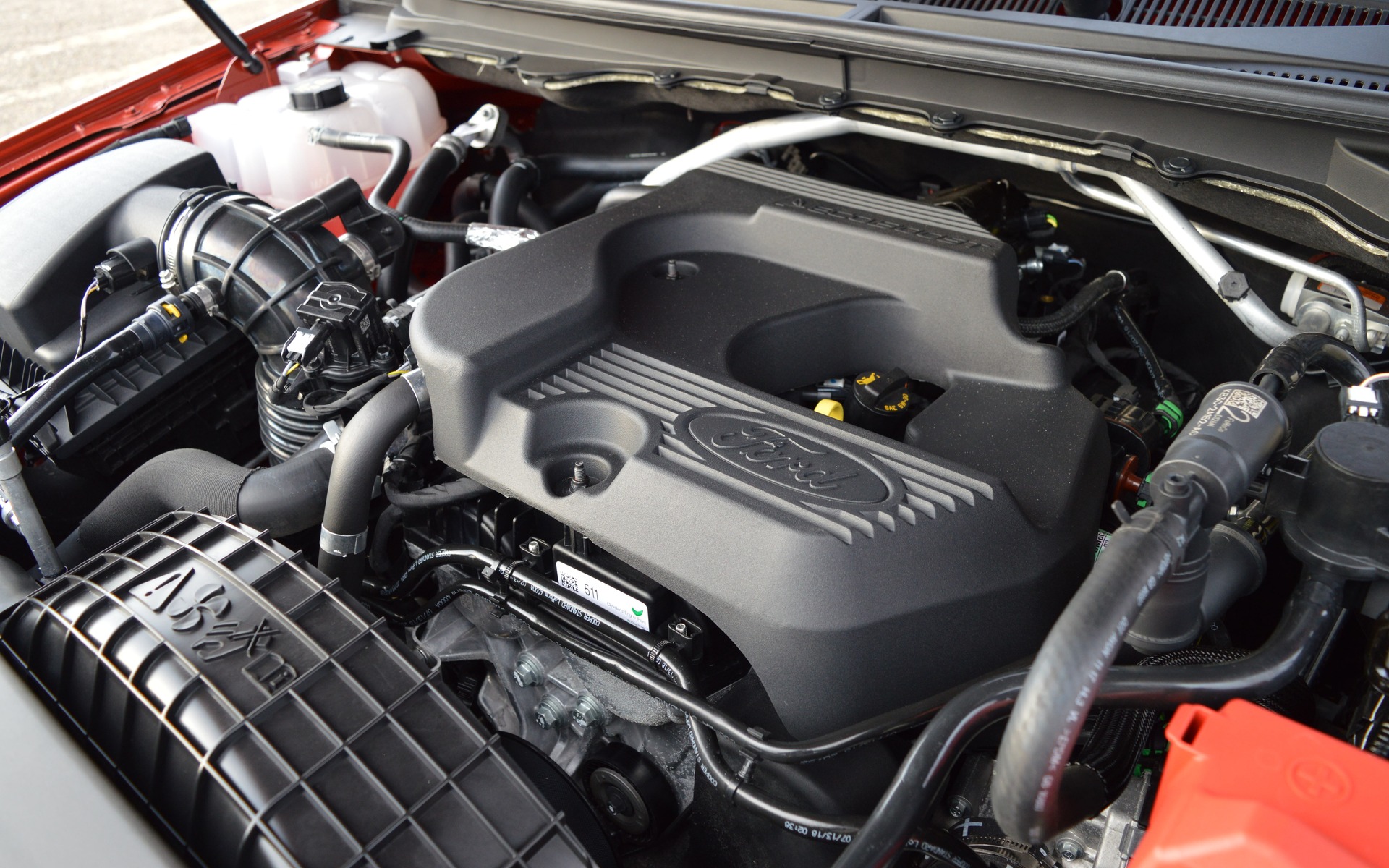Is the 2.2 Ford Ranger Engine the Right Fit for Your Driving and Work Needs?
Is the 2.2 Ford Ranger Engine the Right Fit for Your Driving and Work Needs?
Blog Article
Exactly How to Select the Right Vehicle Engine for Optimum Efficiency and Effectiveness
Picking the ideal auto engine to accomplish an optimum equilibrium of performance and performance requires a nuanced understanding of numerous engine kinds and their specific features. Elements such as engine variation, the variety of cylinders, and gas type play a crucial role in identifying both power output and fuel economic situation. While some might lean towards performance-driven options, others might focus on sustainability and performance. Comprehending these characteristics is important; however, the obstacle exists in lining up these attributes with your individual driving preferences and requirements. What factors to consider will ultimately lead your decision?
Understanding Engine Kind
When choosing a cars and truck, among one of the most critical components to take into consideration is the engine kind, which acts as the heart of the car. The engine type considerably influences the vehicle's total efficiency, longevity, and viability for your driving demands. There are largely 3 engine kinds to think about: interior burning engines (ICE), hybrid engines, and electric engines.
Internal combustion engines remain one of the most usual, running on gas or diesel. They are known for their power and acceleration, making them appropriate for performance-oriented automobiles. Nonetheless, they might drop short in gas performance and ecological effect.
Hybrid engines combine an interior combustion engine with an electrical motor, providing an equilibrium in between efficiency and gas economy. They are progressively popular for drivers looking for minimized exhausts while still providing appropriate power.
Electric engines, powered entirely by batteries, are acquiring traction because of their environmental benefits and lower running prices. They give immediate torque and a quiet driving experience, making them suitable for city travelling.

Performance vs. Efficiency
Picking the best engine kind includes weighing the compromises between performance and efficiency. Performance usually refers to exactly how well an engine can deliver power and velocity, which is frequently related to larger displacement engines or those with turbocharging abilities. These engines typically supply exhilarating driving experiences and fast response times, making them prominent amongst fanatics.
On the various other hand, effectiveness concentrates on gas economic climate and lower discharges. Smaller sized engines, specifically those equipped with sophisticated modern technologies such as direct fuel injection and variable valve timing, often tend to supply better miles per gallon and decreased carbon impacts. While these engines may compromise some power contrasted to their bigger counterparts, they usually master daily driving situations where high efficiency is not always required.
Eventually, the selection in between efficiency and effectiveness hinges on private concerns. A chauffeur who values spirited driving may focus on a high-performance engine, while someone seeking affordable commuting may favor an efficient option. Understanding these compromises is important for making a notified decision that lines up with your driving needs and way of living, ensuring that the selected engine kind enhances your assumptions for both efficiency and effectiveness.
Secret Specs to Think About
Comprehending crucial specs is vital for making an informed decision about the right car engine. When picking an engine, a number of original site important aspects call for consideration to make sure optimal performance and efficiency.
Firstly, engine variation, gauged in litres or cubic centimeters, is a vital spec. It shows the overall volume of the engine's cyndrical tubes and normally associates with power outcome; larger variations typically yield more power. Next off, the number of cyndrical tubes plays a substantial role in efficiency attributes. Engines with even more cylinders can supply smoother procedure and higher power, while smaller sized setups can improve fuel performance.
Additionally, the engine's arrangement, whether inline, V-type, or rotary, influences the general layout and efficiency features of the car - 2.2 ford ranger engine. Turbocharging and turbo charging technologies need to likewise be reviewed; these boost an engine's power output without dramatically enhancing its size, hence improving performance
Gas kind is another essential consideration, as it influences both performance and expenses. Finally, the engine's compression proportion affects performance and power delivery; a higher ratio normally leads to much better effectiveness, yet might require superior gas. By carefully assessing these specifications, you can choose an engine that lines up with your efficiency and performance goals.
Assessing Driving Requirements
Reviewing driving needs is a fundamental action in identifying the ideal vehicle engine for your way of living and usage patterns. Begin her explanation by examining your day-to-day driving practices, including the regularity and period of journeys. If your driving primarily includes brief commutes in urban atmospheres, a smaller engine with excellent gas performance might suffice. On the other hand, if you often embark on long-distance journeys or call for towing capacities, an extra powerful engine might be needed.
Take into consideration the terrain you usually navigate. Hilly or sturdy landscapes may require an engine with higher torque for far better performance. In addition, review traveler and freight demands; larger family members or those that transfer items may profit from automobiles with enhanced power and ability.
Diesel engines usually provide remarkable torque and gas economic situation for heavier automobiles, while fuel engines might offer a smoother and quieter ride. Factor in environmental considerations, as hybrid or electric engines can supply an extra lasting choice without giving up performance.
Future Patterns in Engine Innovation
As the vehicle sector remains to develop, developments in engine technology are leading the way for extra sustainable and efficient driving experiences. One significant fad is the shift towards electrification, with crossbreed and totally electric powertrains gaining prestige. Automakers are investing greatly in battery innovation to enhance power density and decrease charging times, eventually enhancing the practicality of electrical cars (EVs)
An additional arising fad is the development of hydrogen gas cell engines. 2.2 ford ranger engine. These systems use the capacity for zero-emission driving while providing refueling times comparable to standard gasoline engines. In addition, advancements in burning technology, such as variable compression proportions and improved turbocharging, are maximizing conventional inner combustion engines for far better performance and performance
Digital combination is additionally a critical element of future engine technology. The application of expert system and artificial intelligence permits real-time data evaluation, enabling smarter engine administration systems that adapt to driving conditions and improve gas efficiency.

Verdict
Finally, choosing the suitable auto engine demands a comprehensive assessment of numerous variables, including engine type, performance demands, and performance goals. By recognizing the differences in between various engine kinds and considering crucial requirements, people can straighten their selections with specific driving requirements. As improvements in engine modern technology remain to emerge, remaining educated regarding future patterns will better boost decision-making, inevitably leading to a vehicle that balances efficiency and gas effectiveness successfully.
Choosing the proper cars and truck engine to attain an ideal balance of efficiency and efficiency necessitates a nuanced understanding of various engine kinds and their specific qualities. There are mostly three engine types to consider: internal combustion engines (ICE), hybrid engines, and electrical engines.
Efficiency typically refers to how well an engine can provide power and acceleration, which is typically associated with larger variation engines or those with turbocharging capacities. Diesel engines usually supply exceptional torque more information and gas economic climate for heavier cars, while fuel engines might offer a smoother and quieter ride.In final thought, picking the ideal car engine necessitates an extensive analysis of different factors, consisting of engine kind, performance needs, and efficiency objectives.
Report this page